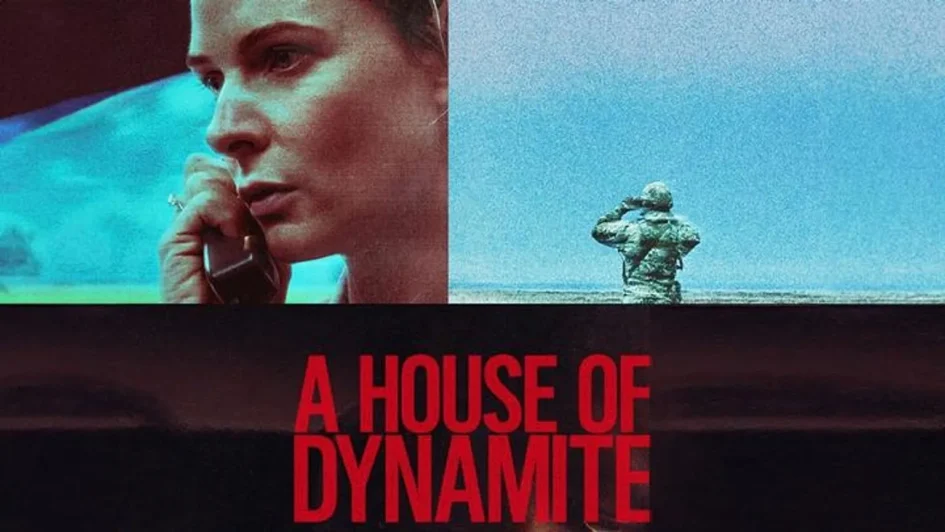I really wanted to like A House of Dynamite. With Kathryn Bigelow directing, a high-stakes nuclear threat premise, and a cast including Idris Elba as the President, Rebecca Ferguson as Captain Olivia Walker, Gabriel Basso, Jared Harris, and Tracy Letts, it looked like a surefire hit. The concept alone promised a tense, politically charged thriller with Bigelow’s trademark realism and intensity. Instead, what unfolds is a film that feels strangely subdued, slow, and emotionally distant.
The story begins when an unidentified missile is launched toward the United States. From there, the film shifts between perspectives: the military team racing to track the threat, the Situation Room where Ferguson’s character works to verify the source, and the Oval Office where Elba’s President faces the ultimate decision. The ticking clock gives the illusion of immediacy, with the film reminding us that there are only eighteen minutes before potential catastrophe. It sounds like the perfect setup for a relentless countdown, but the sense of urgency never really takes hold.

Bigelow’s direction has always excelled at building sustained tension, but here the pacing is uneven. Scenes linger long after their purpose is clear, and conversations stretch on without pushing the plot forward. Even with a literal doomsday clock running, the characters move as if they have all the time in the world. The multiple perspectives, which could have amplified the tension, instead make the film feel disjointed and repetitive. We keep revisiting the same moments through different eyes, but the emotional and narrative stakes remain flat.
The cast delivers strong performances despite the material’s limitations. Idris Elba commands attention with his quiet authority and moral weight, even as the script gives him little to do beyond grim determination. Rebecca Ferguson carries much of the dramatic load, portraying a woman torn between duty and conscience. Jared Harris and Tracy Letts lend credibility and texture to their supporting roles, but even their presence cannot fix the film’s pacing issues or lack of emotional urgency.
The film’s final act is the biggest letdown. The build-up promises a gut-wrenching moral decision, but when the moment finally arrives, the story pulls away. The missile’s origin is left uncertain, and the resolution feels evasive rather than profound. After nearly two hours of buildup, the lack of payoff feels like an intentional choice that fails to satisfy. For a story about choices, power, and global consequences, A House of Dynamite ends up saying very little at all.
It is disappointing because the potential was enormous. The ingredients were all there: a stellar director, an exceptional cast, and a premise loaded with tension. Yet the finished product feels like a long conversation about what could happen rather than a gripping depiction of what does. For a movie built around a countdown, it is shocking how little momentum it builds. Bigelow has proven time and again that she can make the quietest moments pulse with danger, but here even the loudest ones fall flat.
A House of Dynamite is beautifully shot and competently acted, but it lacks the heartbeat of a true thriller. What should have been explosive never even sparks.
A House of Dynamite is out now on Netflix.


